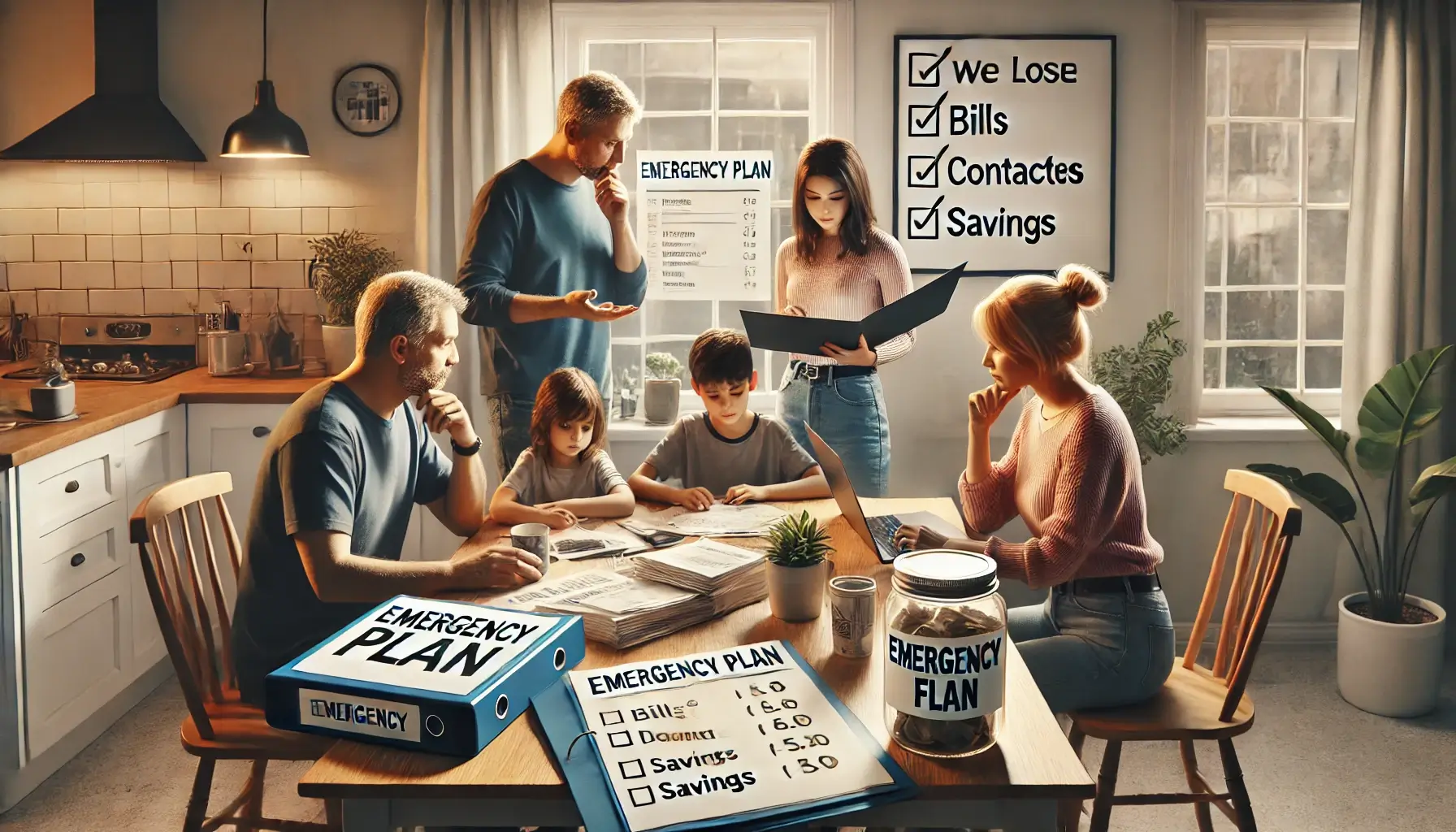Emergencies happen when we least expect them — job loss, illness, unexpected repairs, or even natural disasters. While we can’t always predict these events, we can prepare for them. A strong financial emergency plan gives your family peace of mind, protection, and the ability to act quickly when life takes an unexpected turn.
Here’s how to build a financial emergency plan that keeps your family safe, stable, and ready — no matter what.
1. Understand What an Emergency Plan Really Is
A financial emergency plan is a set of steps and resources your family can rely on during times of crisis.
It includes:
- Emergency savings
- A bare-bones budget
- A list of essential contacts
- A plan for accessing cash quickly
- Clear communication between family members
It’s like a safety net — there to catch you when things get unstable.
2. Start with a Realistic Emergency Fund
The first line of defense is cash savings set aside only for emergencies.
Your emergency fund goal:
- Minimum: $1,000 to start
- Ideal: 3 to 6 months of essential expenses
Keep it in a separate, easy-access savings account. Don’t mix it with your everyday spending.
💡 Tip: If building this feels overwhelming, save small amounts weekly — consistency matters more than size.
3. List Your Essential Monthly Expenses
Know how much your family must spend each month to survive.
Create a “bare-bones” budget including:
- Housing (rent/mortgage)
- Utilities
- Groceries
- Transportation
- Insurance
- Minimum debt payments
- Health and child care essentials
This helps you act fast if income drops or stops.
4. Prepare a Backup Income Plan
If your main income is disrupted, how will your family stay afloat?
Ideas for backup income:
- Freelance work or side gigs
- Selling unused items
- Temporary jobs or part-time work
- Passive income (rentals, small online shops)
Have a plan before you need it — even if it’s just written down for now.
5. Organize Important Documents
During an emergency, you need quick access to key information.
Create a digital and physical folder with:
- ID documents
- Insurance policies
- Bank and loan account info
- Utility account numbers
- Emergency contacts
- Legal papers (wills, powers of attorney)
Use password-protected digital storage and a fire-safe box for physical copies.
6. Build a Communication Plan
Everyone in the family should know what to do and who to call during a crisis.
Include:
- Emergency contact list (family, friends, doctors, etc.)
- Who will handle which financial tasks
- Where important documents are kept
- A group text system or shared calendar for updates
This avoids confusion and keeps everyone informed and calm.
7. Cut Non-Essentials Quickly if Needed
When emergencies hit, speed matters.
Be ready to pause:
- Streaming services
- Dining out
- Shopping budgets
- Travel or memberships
Shifting to “survival mode” temporarily protects long-term stability.
8. Plan for Health-Related Events
Medical emergencies can be among the most expensive.
Prepare by:
- Knowing your insurance coverage
- Keeping a list of medical providers
- Saving for deductibles or co-pays
- Setting up a Health Savings Account (HSA), if available
Prevention and preparation save stress and money.
9. Revisit and Practice Your Plan Annually
An emergency plan isn’t something you make once and forget.
Each year:
- Update your expenses, contacts, and savings goals
- Run a “what-if” scenario (e.g., “What if we lost one income?”)
- Make sure everyone remembers the plan
- Adjust based on your family’s current situation
Practice builds confidence.
10. Include the Whole Family
Emergency planning isn’t just for the adults.
Involve kids and teens by:
- Teaching why saving matters
- Showing them the emergency contact list
- Talking about needs vs. wants
- Practicing calm responses to challenges
Financial resilience is a family skill — and it starts with communication.
Final Thoughts: Prepare for Peace of Mind
A financial emergency doesn’t have to become a disaster. When your family has a plan, savings, and communication in place, you’re ready to face anything — with strength, stability, and less stress.
So start now. Take it step by step. And know that every bit of preparation today brings more peace tomorrow.

